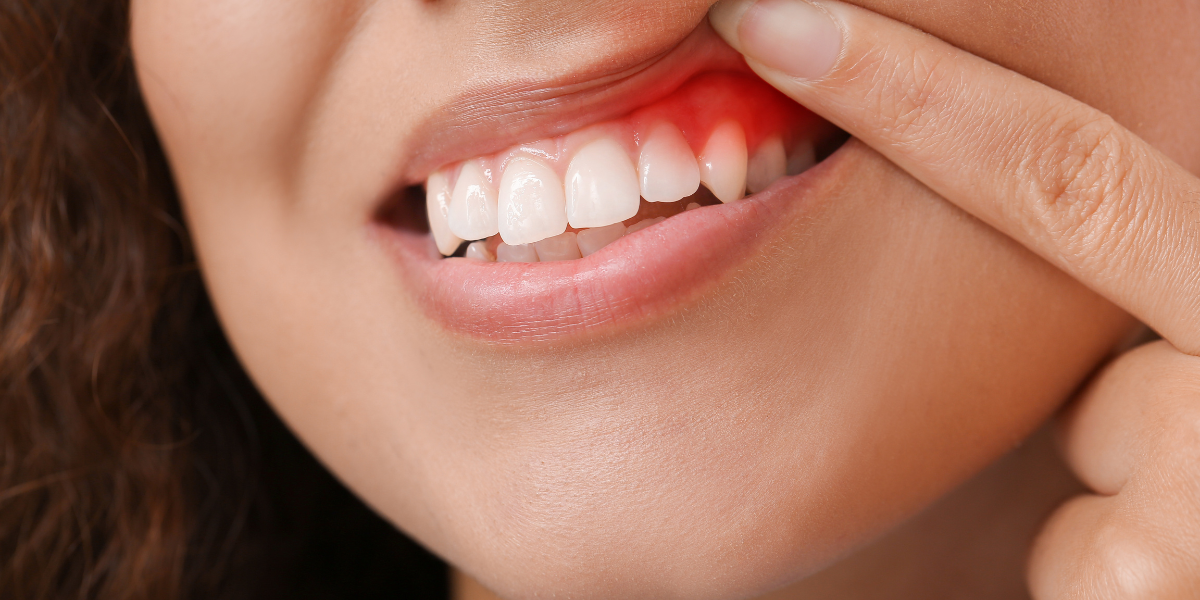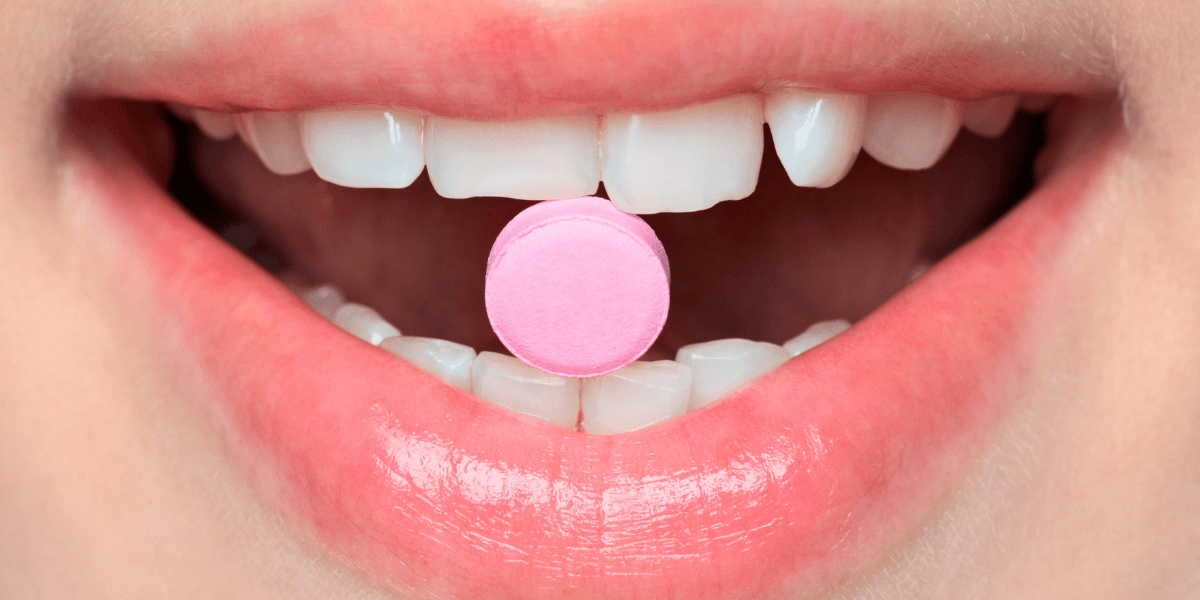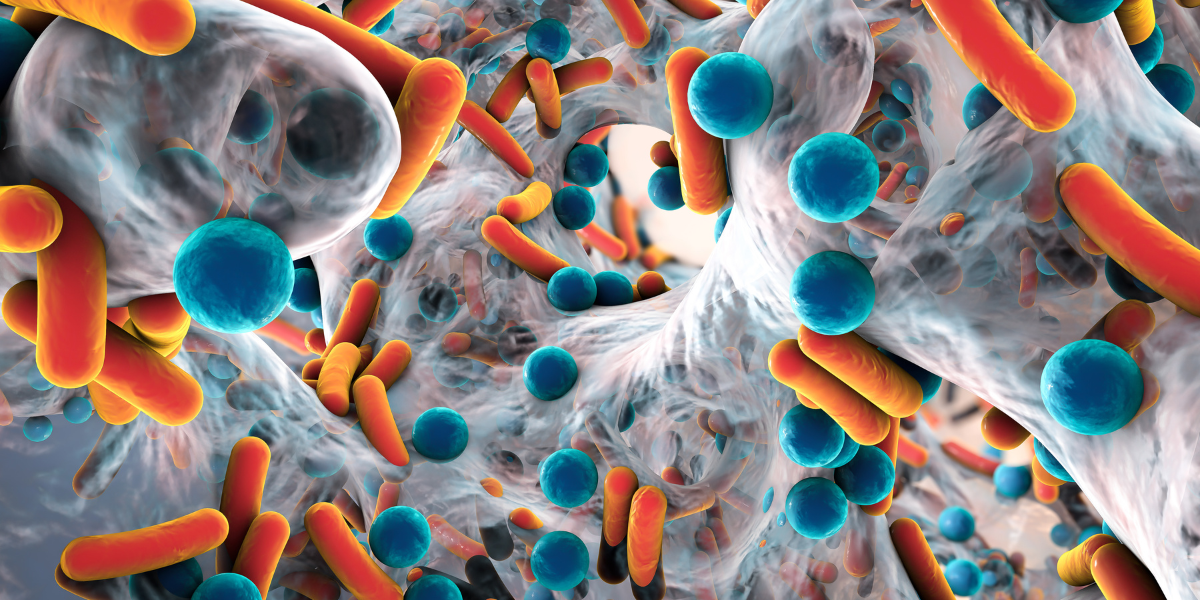Gingivitis: causes, symptoms & treatments

Gingivitis, or gum inflammation, is caused by a variety of factors which, if allowed to progress, can actually lead to tooth loss and other oral & physical health consequences. Look for signs like redness, soreness, or bleeding.
What is gingivitis?
Gingivitis is inflammation of the gums that can be caused by several factors, including poor dental hygiene, diet, hormones, and certain medications. If gingivitis is untreated, it can progress to more severe gum disease, periodontal disease, and bone loss. The condition is isolated to the soft-tissue area of the gingival epithelium and connective tissue. [1]
Gingivitis is a less serious form of periodontal disease and is a common condition affecting the gums. Gingivitis can be caused by a build-up of plaque leading to inflammation, redness, and bleeding gums, which is the most typical cause of gingivitis. Plaque is a biofilm that accumulates on the tooth surface and contains many bacteria. Leaving gingivitis untreated can progress to periodontitis, a more serious form of gum disease.
Periodontitis is when the periodontal condition has progressed beyond gingivitis into a chronic, destructive, and irreversible inflammatory disease state. If left untreated, bone loss and further destruction of the supporting tissue surrounding the tooth can become damaged, resulting in tooth loss and bad breath, and may complicate other systemic conditions.
Genetics, environmental, and behavioral factors are involved in the development of the disease, the exposure of susceptible individuals to its initiation, and the speed of progression. [2] Strong contributing factors to periodontal disease include smoking, diabetes mellitus, metabolic syndrome, and obesity.[2]
The oral microbiome
The oral microbiome is defined as a collection of microorganisms that reside in the oral cavity. Oral bacteria can populate the human mouth as early as the day you are born. If these bacteria are imbalanced, the harmful bacteria can grow and cause destruction to your teeth and gums, leading to cavities and gum disease.
Common causes typically associated with gingivitis
Diet
An individual’s diet plays a significant role in their oral health, and what you eat directly impacts your oral health. Gingivitis may occur due to a vitamin C deficiency.[1] A balanced diet rich in nutrients helps to keep teeth and gums healthy. On the other hand, sugary and acidic foods can influence a person’s oral environment making it more susceptible to tooth decay and gum disease. Be mindful of your dietary habits to maintain good oral and systemic health.
Hormones
Hormones play an essential role in oral health. Fluctuations in hormone levels can cause changes in the mouth, such as increased sensitivity or dryness. During adolescence, gingivitis appears earlier in girls (eleven to thirteen years) than in boys (thirteen to fourteen years).[1]
During pregnancy, it has been suggested that estrogen levels determine the severity of gingival inflammation created against the biofilm at the gingival margin.[1] Maintaining good oral health will reduce the risk of adverse pregnancy outcomes.
Oral pH
Saliva plays an essential role in oral health by washing away food particles and bacteria, influencing tartar formation and gum disease, and keeping the mouth hydrated. Saliva has a normal pH range of 6.2-7.6, with 6.7 being the average pH.[3]. Healthy saliva contains basic compounds that neutralize acids produced by plaque bacteria.
Pathogens
Salivary diagnostics are a non-invasive way to determine if harmful pathogens are present. Many studies have observed that periodontal pathogens grow at particular pH environments.[4]
Medications
Certain medications can also affect oral health. Several drugs prescribed for systemic conditions can cause drug-induced gingivitis as a side effect, such as phenytoin (used for epileptic seizures), calcium channel blockers (used for angina and high blood pressure), anticoagulants, and fibrinolytic agents, oral contraceptive agents, protease inhibitors, vitamin A and analogs.[1]
Gingival Hyperplasia (Enlargement)
Drug-induced gingival overgrowth (DIGO), also referred to as drug-induced gingival enlargement, is noted as a side-effect of certain medications given for non-dental uses where the gums are not the intended target.[1][5]
Gingivitis Prevention
The best way to prevent gingival inflammation is to perform beneficial oral hygiene practices including brushing and cleaning in between the teeth, eating a healthy diet, and avoiding tobacco and vaping products. Continuous collaboration and communication with your primary care physician and dental healthcare professionals will help prevent gingivitis.
If you’re concerned about how hormones, your daily oral hygiene practices, pathogens, diet, or medications may be impacting your oral health, speak to your dentist and healthcare provider for a more holistic approach to your oral-systemic health.
- Rathee M, Jain P. Gingivitis. [Updated 2022 Jun 16]. In: StatPearls [Internet]. Treasure Island (FL): StatPearls Publishing; 2022 Jan-. Available from: https://www.ncbi.nlm.nih.gov/books/NBK557422/
- Könönen, Eija, Mervi Gursoy, and Ulvi Kahraman Gursoy. 2019. “Periodontitis: A Multifaceted Disease of Tooth-Supporting Tissues” Journal of Clinical Medicine 8, no. 8: 1135. https://doi.org/10.3390/jcm8081135
- Baliga, S., Muglikar, S., & Kale, R. (2013). Salivary pH: A diagnostic biomarker. Journal of Indian Society of Periodontology, 17(4), 461–465. https://doi.org/10.4103/0972-124X.118317
- Koppolu P, Sirisha S, Penala S, et al. Correlation of Blood and Salivary pH Levels in Healthy, Gingivitis, and Periodontitis Patients before and after Non-Surgical Periodontal Therapy. Diagnostics (Basel). 2022;12(1):97. Published 2022 Jan 3. doi:10.3390/diagnostics12010097
- Tungare S, Paranjpe AG. Drug Induced Gingival Overgrowth. [Updated 2022 Sep 19]. In: StatPearls [Internet]. Treasure Island (FL): StatPearls Publishing; 2022 Jan-. Available from: https://www.ncbi.nlm.nih.gov/books/NBK538518/







